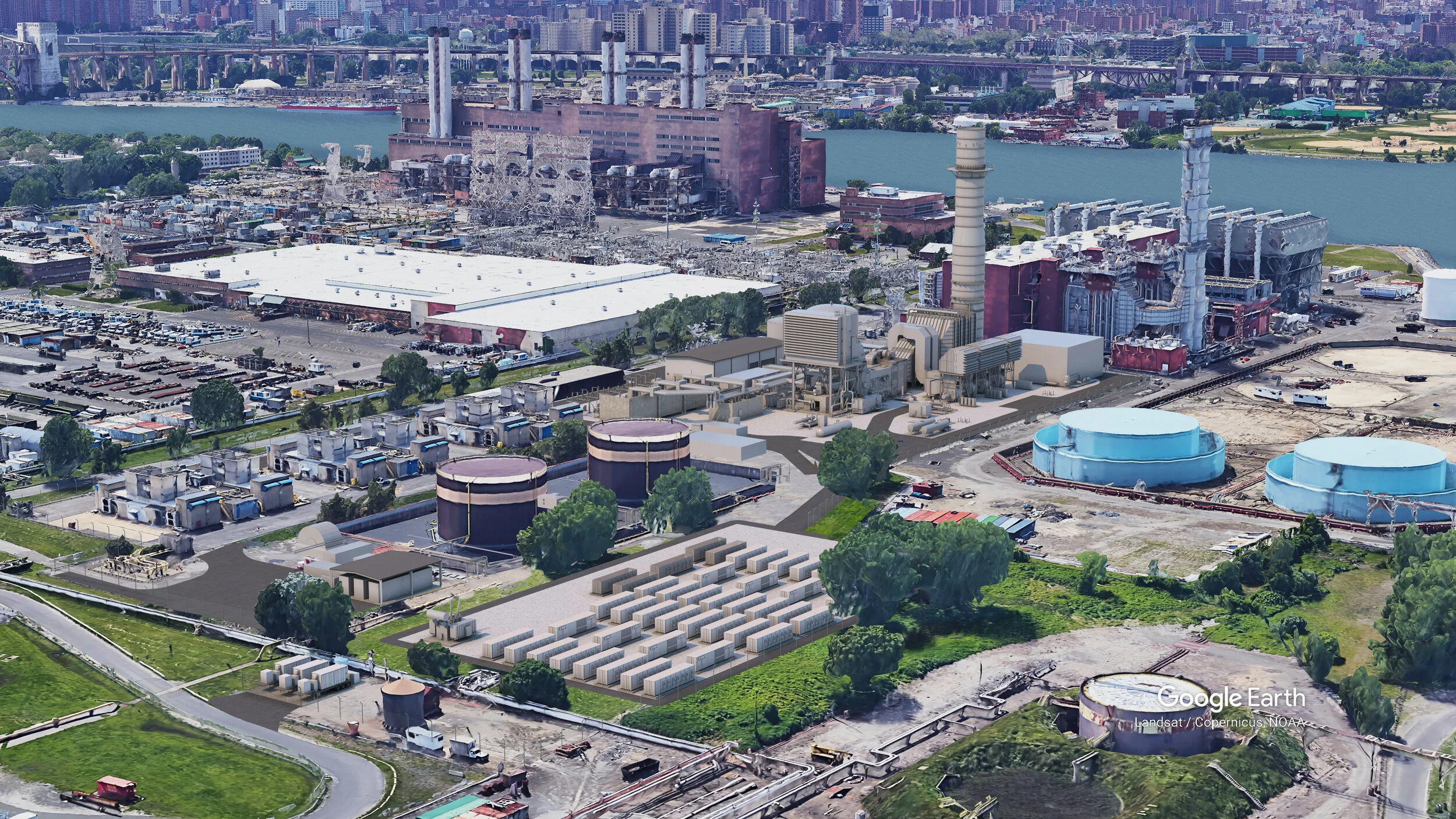Queens condemns NRG plant at DEC hearing
/Dozens of concerned citizens signed on to testify against the proposed NRG replacement project in Astoria. Rendering courtesy of NRG
By Rachel Vick
This story was updated at 12:17 p.m. to include additional comment from NRG
Children, asthma sufferers and climate activists were among the more than 100 concerned citizens to overwhelmingly voice opposition to the proposed overhaul of the NRG Astoria generating station Tuesday.
During the first in a series of public hearings held by the Department of Environmental Conservation, speakers rejected the peaker plant plan as antithetical to the region’s climate and clean energy goals. The plant in the Con Edison Complex on 20th Avenue supports the electric grid in times of high usage.
Lawmakers including Sens. Charles Schumer, Michael Gianaris and Jessica Ramos, who have worked to pass climate legislation, tuned in to condemn the project.
“This remodeled plant NRG is planning is not only unwanted but unnecessary; it is environmentally irresponsible,” Ramos said. “Building a new fracked gas power plant when we need to rapidly end our reliance on fossil fuels imperils our ability to fight climate change and treats communities like Astoria as sacrificial lambs.”
“The residents of Queens… know that the way to cleaner air and healthier living is investing in renewable energy,” she added. “By now we know that catastrophic failure of our planet is not an intangible event occurring in the future, this is happening now.”
The proposed project for the peaker plant would swap outdated turbines with a newer, more efficient model that runs on natural gas and has a generating capacity of 437 Mega Watts.
Many speakers questioned how the state could consider allowing a project that would even temporarily rely on natural gas to move forward after the ban on fracking, and as the city works towards achieving the goals outlined by the Community Leadership Climate Protection Act.
Testimonies were marked by exasperation at the continued need for hours of meetings, and a few pointed to the opportunity and responsibility of the state agencies. Some argued that
the need for the promised energy delivery was made obsolete by a deal reached by Con Edison to support the retirement of plants, including NRG Astoria.
Civilians and lawmakers alike said the agency should instead be prioritizing renewable projects supporting CLCPA goals including relying on 70 percent renewable energy by 2030 and reducing greenhouse gas emissions by 85 percent by 2050.
The proposal “goes against the health of every citizen of New York, the U.S. and our planet,” said Jackie Weisberg, a volunteer with Food and Water Watch. “Do we really need to keep stating this over and over again? How many testimonies must there be?”
Many pointed out the higher than average asthma rates that have earned the western Queens neighborhood the nickname “Asthma Alley.”
Sandra Steingraber, senior scientist at the Science and Environmental Health Network, said that natural gas-power plants like NRG Astoria are major emitters of methane and nitrous oxide — which contributes to the smog known to cause heart attack, stroke asthma and preterm birth —
and “will certainly, certainly harm the health of the people living there.”
On the heels of a summer that saw unprecedented climate change landmarks, including one of the hottest Julys on record and the rainiest hour in New York City history, speakers underscored irrevocable evidence of the harmful impacts of fossil fuel-powered plants not only in the immediate area but the global environment. Parents gave emotional testimony to the uncertain future their children are facing.
“I’m one of those people who when they hear a climate projection quickly does the mental math to determine how old the kids I know will be at that time, I think how old my daughter and her friends will be,” said Sunnyside resident Orianna Webb, “Based [on the latest Intergovernmental Panel on Climate Change] report… these kids' journey into adulthood and middle age stands to be fraught with difficulty and suffering that we have set up for them and advanced.”
Only one supporter of the replacement project signed on to speak at either of Tuesday’s hearings, citing the need for infrastructure that will bridge the gap between existing resources and the renewable energy future. According to an NRG spokesperson, the DEC has received written testimony in support of the project.
The upgrades are estimated to reduce statewide greenhouse gas emissions by more than five million tons through the year 2035, and will have the capacity to run on hydrogen once the technology is viable, according to the company.
“The need for reliable power is as great as ever,” said NRG spokesperson Dave Schrader. “NRG’s plan to upgrade its Astoria plant with state-of-the-art technology is fully consistent with the Climate Leadership and Community Protection Act as it will immediately result in significant reductions in greenhouse gas emissions and supports the expansion of renewable energy resources throughout the state.”
Queens Climate Project member Elaine O’ Brien said that NRG’s tactics to push the plan through including “greenwashed promises of clean hydrogen” and highlighting 500 jobs instead of 12 permanent positions were no surprise, but the DEC’s hesitation to reject the proposal was.
“Why is the DEC even considering such a nonsense proposal,” the Jackson Heights resident asked. “If at least part of the agency’s purpose is to protect our environment and guard against harmful projects then why are we here talking tonight about another fracked gas power plant in asthma alley in 2021?”
The comment period for the project has been extended until Sept. 13. Two more sessions for public comment are scheduled for Aug. 26.




